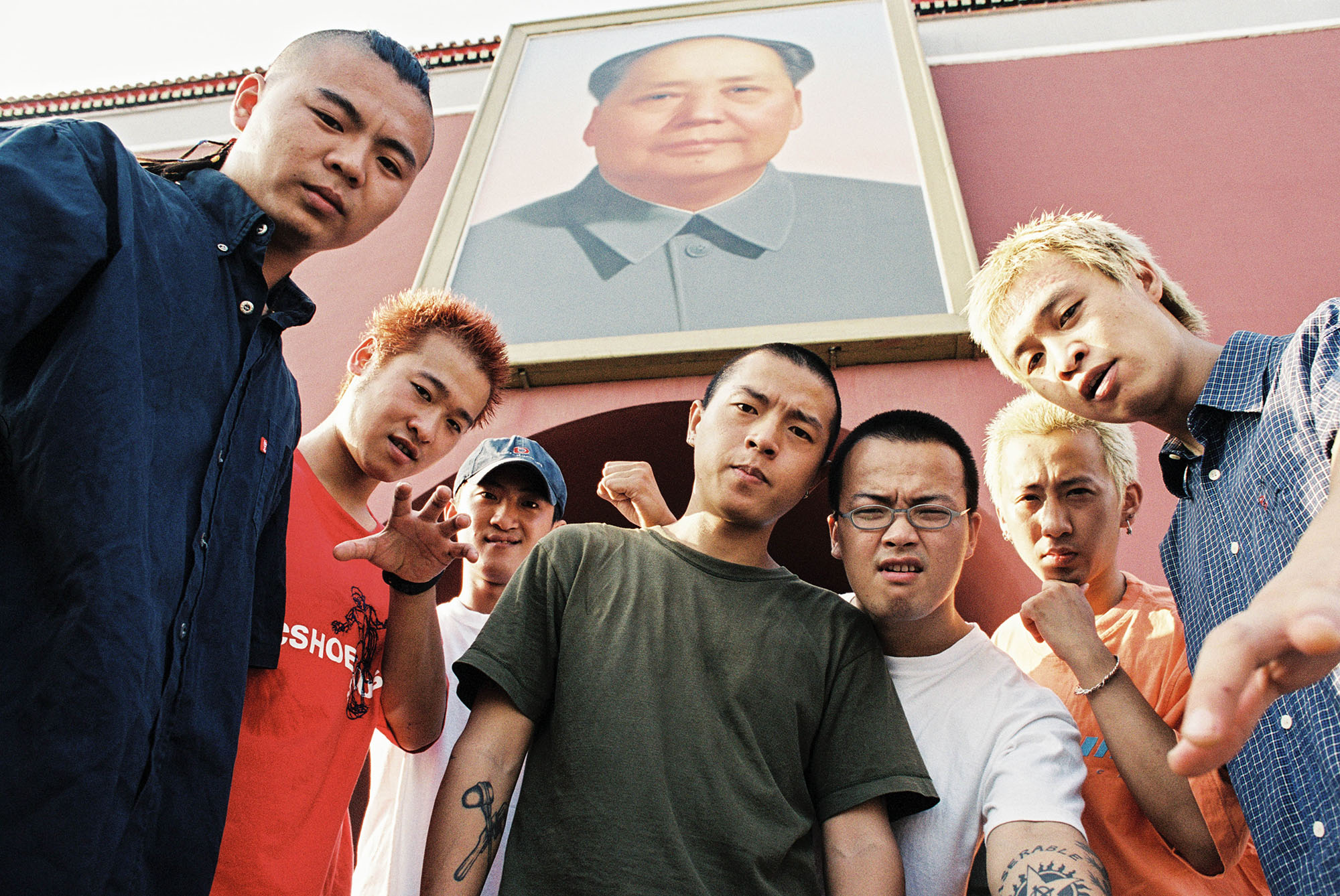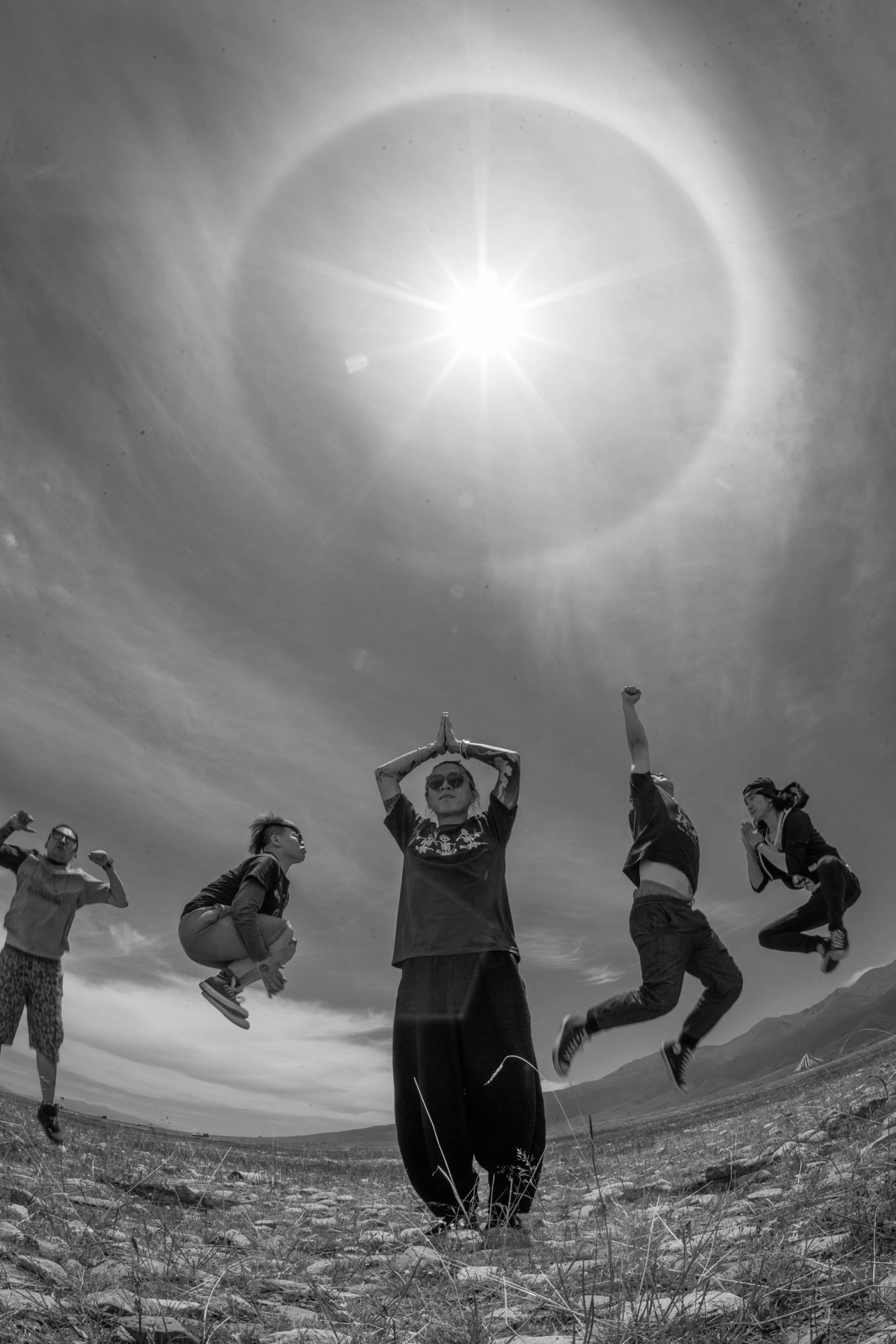If something’s not allowed, it only becomes more alluring. This is especially true with rock and metal music in China. After the student-led Tiananmen Square Protests of 1989, the scene was driven underground by the government, out of fear that loud music would encourage young people to revolt. The move created something of a catch 22. Chinese kids found an outlet for their anger in the condemned genre — and found themselves increasingly angry as political forces tried to quash the scene entirely. Never mind making it into the Rock ‘n’ Roll Hall of Fame — these kids were enduring squalid living conditions and juggling multiple jobs just to make ends meet as young musicians.
Yang Zhang turned 20 in 1996, when he moved to Beijing. He spent his college years documenting the bands he gigged and pursued fame with in China’s rock ‘n’ roll epicenter. As Zhang explains to i-D, at a recent exhibition of his photography and film — EVOLUTION: About the Survival and Growth of Underground Musicians in China, curated by Xiaojuan Xie — it’s hard to teach yourself music if you can’t hear what it’s supposed to sound like.

“There was a tall guy who went to Beijing to find someone to teach him guitar,” Zhang tells i-D through a translator. “In the mid 80s, not only was it was difficult to hear rock music from abroad, but it nearly impossible to access teaching materials for electric guitar. What’s more popular is the knowledge of Spanish [classical] guitars.” Eventually, this tall guy found a famous guitar player called Wu Ding, and was invited to live at his new mentor’s home almost free of charge (Ding was the landlord). During this time, he became infatuated by a few Japanese electric guitar scores pasted on the door of Ding’s home. “After his learning period, the tall guy decided to go back home and left behind 200 RMB, a large sum of money at the time, as a gift to Ding when Ding went out to work,” Zhang says. “But the tall guy loved the Japanese guitar score so much, and in order to take it with him, he simply unloaded the door panel where the score was pasted.” Two years later, the tall guy and Ding formed a metal band named Tang Dynasty — which the changed the game for underground music in China. The tall guy — Yijun Liu, or “Tang Dynasty Lao Wu” — is now known as China’s first guitar hero.

EVOLUTION’s meatiest work is the documentary Zhang shot during the early years of bands like Tang Dynasty and Miserable Faith — called Post-Revolutionary Era — when musicians were hesitant to let outsiders into their lives. But rock and metal music didn’t just appeal to angsty students and their landlords. In fact, the photographer explains, while his peers were living on crumbs, China’s affluent denizens were blasting western rock hits at dinner parties. “Sometimes people from abroad would come back to China and bring a tape or something,” Zhang says, his translator emphasizing that these weren’t just kids coming back from exchange programs. “Only those people that were rich — that had a high social status. Those people would like to play rock music.”

Most of the bands in Post-Revolutionary Era did finally achieve real fame, the documentary standing as testament to these kids’ drive and determination. And Zhang is finally able to bring his work to America. (In the 90s, he could only show it in Shanghai.) He’s showing it alongside a newer film, China Youth Today (2015 — 2017), which captures his old college friends as husbands and fathers — recently, a few of them formed a band they literally named Fathers. A select number of photographs in EVOLUTION reveal the memories Zhang is most fond of. They include 90s promo shots and album covers, his peers posed like Linkin Park or Alien Ant Farm, showing off spiked and bleached hair, and styled in baggy skater jeans. One photo was taken more spontaneously during a tour in Shanghai. They were sightseeing at very high altitude when Zhang told them, “just for a funny thing,” to jump in a freezing lake nearby. “At that altitude, it feels like a paradise, because you feel so close to the sky, and you feel so calm, so satisfied,” he says more seriously. “They have a big song without words, so it [evokes] a sense of calm, which is very similar to the sky at that time.”

In China, rock music is still not mainstream, because the government doesn’t recognize it officially. “It still has a revolutionary spirit because it’s critiquing the government and critiquing the bad things in the country,” Zhang explains. “The Chinese government is afraid to open rock music to the whole country. The government wants young people to focus their attention on living a beautiful life.” But looking at the young people in his photos, you get the sense that’s exactly what they’re doing.




